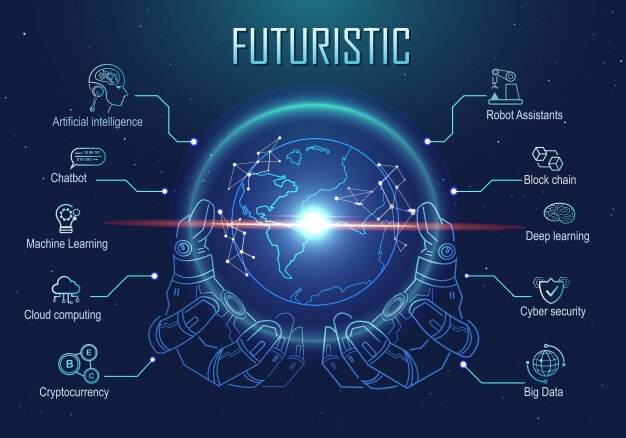
Common Jobs in 2040 (Part-1)
When we work on planning careers for young teenagers, we have to keep in mind we are preparing them for future. So it would help all the stakeholders immensely if they are aware of what could be the job scenario by 2040.
Think of a typical Indian household of 1950’s and compare that to Indian household of 2010’s. We would see sweeping changes in them. Within 50 years we are using unimaginable things in our houses. Could someone in 1950’s imagine that the world around us would change completely? Just like them we also do not fully grasp the possible impact of technological advances.
It’s commonly thought that if a job disappears then it’s simply gone and nothing will fill the void. But that’s not true. Many predict that jobs are going to be automated; robots and artificial intelligence shall take over our jobs. We think of irrational timeline and unrealistic consequences for what lies ahead.
A major misconception is that robots, automation and AI destroy jobs, which is not true. It does kill parts of jobs and eliminates the needs for certain skills, but entire jobs are far more complex than that. In the short to medium term, the main effect of automation will not necessarily be eliminating jobs, but redefining them. For example, ATM machines did replace many of the tasks that bank tellers/clerks performed, but not all of them. As a result, ATMs enabled tellers to be more efficient doing other things.
Future jobs will have professions that revolve around technology, but primary job creation will be through technology, not the profession.
1. Robot Managers – Smart robots will require entire ecosystem of support staff to operate efficiently. In much the same way a passenger train creates employment for dozens of people (Loco-Pilots, attendants, Station Staff, reservationists, ticket agents, etc.). Even the most versatile robots will require support workers to perform.
Possible Related Professions: Robot maintenance, monitoring, operations, suppliers, programmers, UI/UX experts, Robot ethicists, etc
2. Data Handling – In many respects, data is the new oil. As a seemingly unlimited resource with the potential to create millions of new products, data will create hundreds of new job categories.
Possible Related Professions: Data-aggregators, detectives, analytics, monitors, ethicists, brokers, etc
3. Drone commanders – By 2040, large fleets of drones might be very common. There will be so many drones and they would be performing so many important tasks. So, we will see many drone-related positions created for monitoring payloads, systems and optimizing traffic flow.
Possible Related Professions: Drone ATC, ground crew, flow optimizers, maintenance and repair, security, designers, programmers, etc
4. Health Masters – The nurses and doctors in the future would be doing some different work.
Possible Related Professions: Anti aging practitioners, Brain augmentation, Aging assistants, Gene Sequencers, Neuro Stimulation, Genetic modification designers and engineers, etc
5. AI-Enhanced Freelancers – As we begin adding AI enhancements to our bodies and minds where only those skilled in the craft will be able to fully leverage the AI turbo charging.
Possible Related Professions: AI-enhanced coaches and trainers, AI-enhanced writers, musicians, artists, accountants, etc

6. Driverless ground Support – Just because the driver is gone doesn’t mean there’s no room for humans. In fact, just the opposite is true. In many situations we reach the point of diminishing returns where it’s far cheaper and easier to employ a person instead of building a robot to handle a situation that only occurs once in every million-car trips.
Possible Related Professions: Command center operators, Payment and accounting, Maintenance and repair, Cleaning crews, Charging station installers, On-board experience designers, etc
7. Blockchain architects – Blockchain in all its forms and derivations represents an exciting new industry that will overlay virtually every other industry. In many respects, this is virgin territory and we have yet to discover the true limits of blockchain.
Possible Related Professions: Blockchain regulators, engineers, designers, UI/UX experts, cloud managers, system analysts, product managers, business development experts, etc
8. 3D printing fabricators –3D printing is bound to grow exponentially in speed precision and in the kinds of material used. This will open doors to a variety of support persons, as each machine becomes a profit center.
Possible Related Professions: Digital house architects, Material scientists, product designers, pill pharmacies, printed organs, limbs, and prosthetics, food printers, etc
9. Cryptocurrency – Existing banking/finance industries might employ number of people but the traditional currency would shrink. Automation might cause branch banking outlets to history. We might see that huge portion of currencies shall turn into cryptocurrencies. Much of the growth in the Banking & Financial sector might be in professions related to cryptocurrency.
Possible Related Professions: Cryptocurrency regulators, bankers, transaction specialists, wealth managers, Cryptocurrency insurers, miners, exchange operators, analysts, etc
10. Sensor System Architects/Curators – It is expected that by 2040, the data world would exceed 100 trillion sensors. As we uncover innovative ways to sense & monitor different aspects of the world around us, the number of people required to bridge the interface between data and our physical world will grow exponentially.
Possible Related Professions: Sensor designers, installers, Sensor tailors and garment creators, data modelers, data transmission Experts, Signal engineers, Architects, troubleshooters, etc.
What we can conclude is that future is definitely going to be quite different, changes are going to be disruptive; the entire paradigm would change in many domains. New professions are going to emerge & many current ones are going to be wiped out altogether. As parent, our thought process is many times fixated on how we made our careers; can you foresee that imitating same process might be counterproductive for your ward.
There are so many businesses that are marginalized or wiped out completely in last three decades. Kodak, Polaroid, Myspace, Blackberry, Pan American, Netscape, AOL are just few of them. This is when the changes in technology were only incremental in yesteryears. Going into future it is going to be exponential & disruptive. Computer architecture, energy sources and manufacturing practices will change dramatically and we can at least see rough outlines of the shifts. What isn’t visible is the secondary effects, the technologies and business models that will build on top of that change.
That’s why today it is crucially important to set aside resources to explore, experiment and to tackle grand challenges so that one can begin to understand and ultimately harness the forces that will shape an industry. It’s better to prepare than adapt because, by the time you see the need to adapt, it may already be too late.
Content presented is compiled from resources available on internet. Some prominent resources used are articles published in various international newspapers, fastcompany.com, blogs like Thomas Frey, guild.co, etc.
